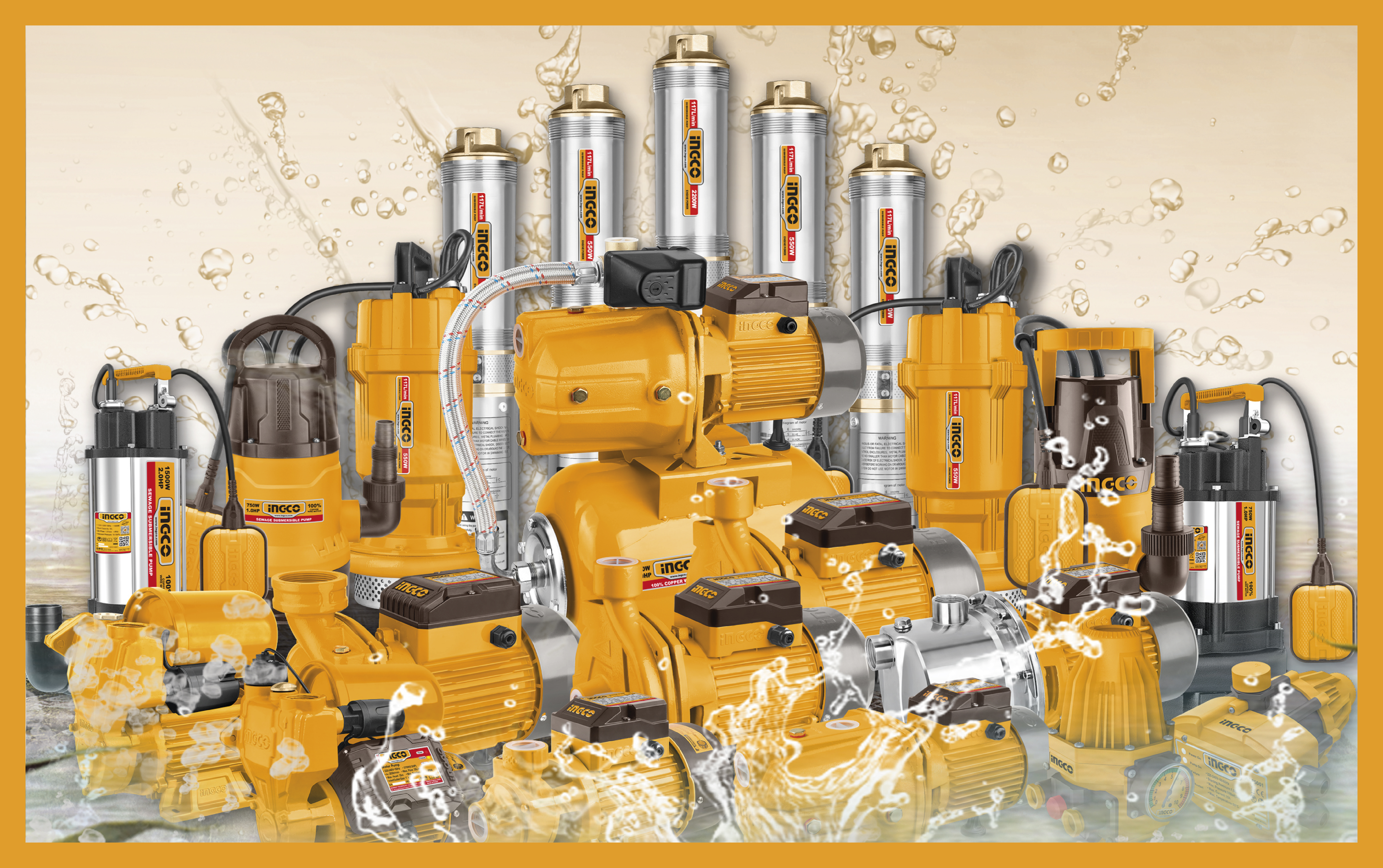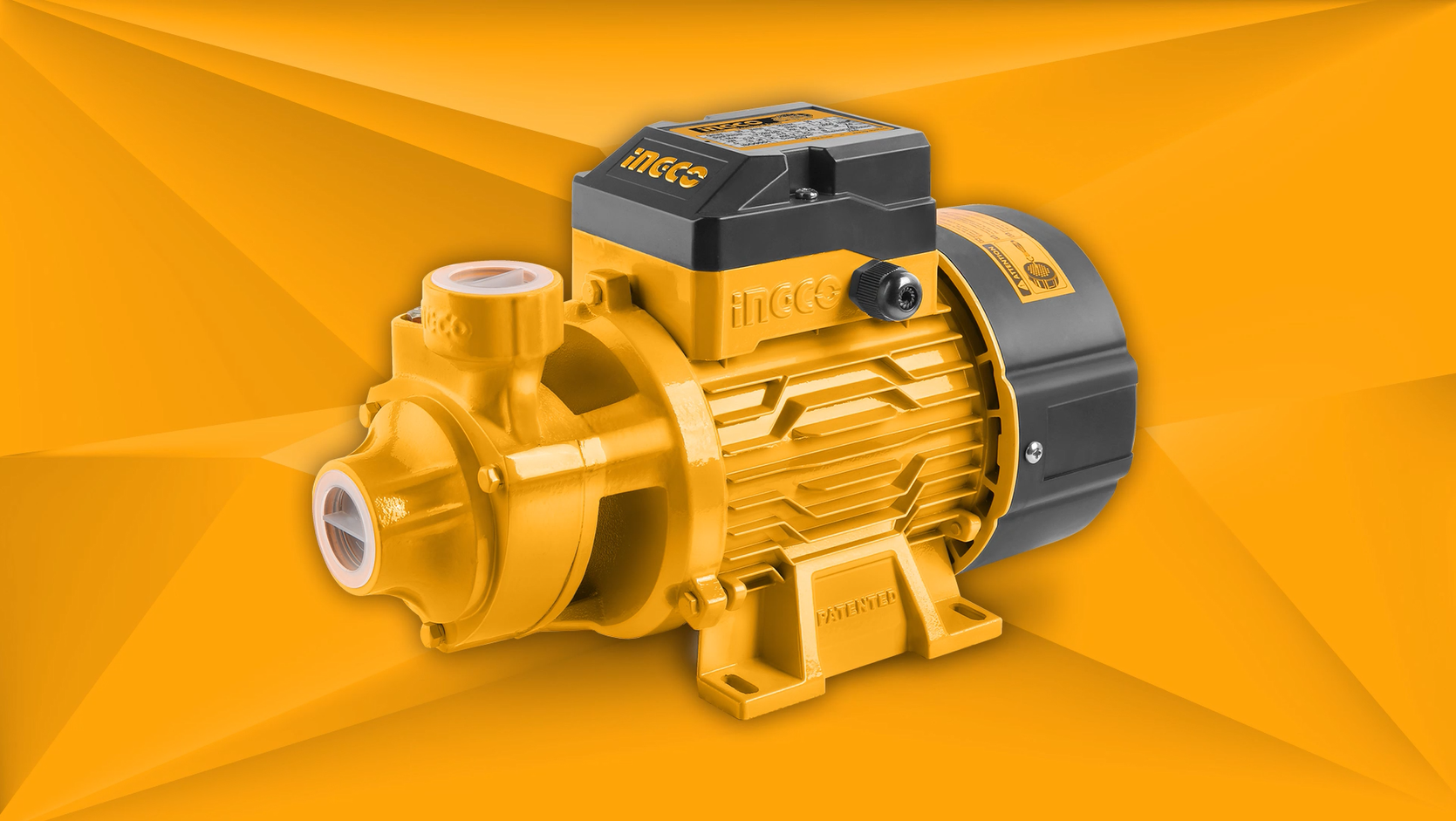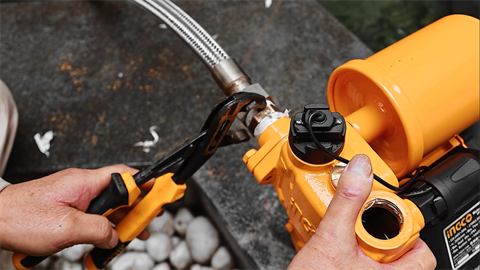What Is Water Pump: A Comprehensive Guide
For many years, water pumps have been helping us to efficiently manage water across different applications. They can help in many situations like irrigation for landscaping, managing excess water and floods through drainage, maintaining a steady supply of water for homes and businesses, or any other water-related needs.
If you’re trying to choose the right pump or just seeking general information about what is water pump, this guide is designed for you. This will cover different types of water pumps, how they work, and key factors to consider for selection and maintenance.

What Is a Water Pump?
A water pump is a mechanical device designed to move water from one location to another, utilizing pressure changes within a system. Water pumps are utilized in many areas, including residential, agricultural, and industrial settings. They are mainly used for irrigation, draining flooded areas, transferring water between tanks, or maintaining water levels in pools and boats.
How Does a Water Pump Work?
A water pump works by creating a pressure difference to move water from one place to another. It usually features a spinning impeller or rotor inside a sealed chamber, which creates a low-pressure area at the inlet to draw water in and high pressure at the outlet to push it out.
The pump's motor, which can be electric (AC or DC) or gas-powered, drives this process. Water enters through an inlet valve or pipe, moves through the impeller chamber, and exits through an outlet valve or pipe. Its efficiency is influenced by its flow rate (measured in gallons per minute), maximum lift height, and horsepower.
Many water transfer pumps are self-priming, meaning they can draw water up from a lower level. Some can handle solids or debris, while others are meant for clean water only. The durability and capability of a pump are also affected by its construction materials, such as stainless steel or heavy-duty plastics.
How to Choose a Water Pump?
Choosing a water pump can vary based on your location, necessities, and the type of water you're handling. Let’s take a look at the different aspects that you should consider.
GPM Discharge Capacity
The first thing you should check is the GPM (gallons per minute) discharge capacity when choosing a water pump. This measure indicates how quickly the pump can move water from the source to where it's needed.
To know the suitable GPM for you, consider your specific requirements, such as household water usage, irrigation needs, or industrial applications. For a typical household, a pump with 6-12 GPM is often sufficient, while larger properties or agricultural uses may require 20 GPM or more.
For outdoor use, estimate the area that needs watering and consult irrigation guidelines. To check adequate water supply during peak usage times, it's generally better to choose a pump with slightly higher capacity than what you think you'll need.
Vertical Suction Lift
Vertical suction lift is the vertical distance between the water source and the pump's inlet. Typically, centrifugal pumps have a practical limit of about 25 feet for suction lift, though this can vary based on pump design and environmental conditions.
To determine the appropriate vertical suction lift, consider factors such as atmospheric pressure at your location, Net Positive Suction Head Required (NPSHR) of the pump, friction losses in the suction pipe, and vapor pressure of the liquid being pumped. It's generally recommended to keep the suction lift as low as possible for optimal performance.
Maximum Head Lift
The maximum head lift refers to the total vertical distance the pump can push water, from the water source to the highest point of discharge. Different pump types have varying head lift capabilities; for instance, submersible pumps generally offer higher head lifts than surface pumps.
Keep in mind that as the head lift increases, the pump's flow rate (GPM) typically decreases. Therefore, finding the right balance between head lift and flow rate is essential for optimal pump performance in your specific application.
Choosing a well-reputable brand is also a factor if you want a high-quality water pump. For instance, INGCO water pumps are regarded for their exceptional performance and reliability. They offer a wide range of maximum head lift rates, allowing for selection based on specific requirements.

How Do I Maintain a Water Pump?
Regular upkeep is key to preventing costly repairs and downtime, making sure that your water pump runs efficiently and lasts longer. Here's a simple checklist to help you keep it in top condition:
- Regularly inspect the pump for leaks, unusual noises, or vibrations, which may indicate problems.
- Keep the intake screen or filter clean to prevent clogs from debris, especially in submersible pumps.
- Check the impeller for blockages and wear, and clean or replace it as necessary.
- Follow the manufacturer's lubrication guidelines to ensure smooth operation if the pump requires it.
- Make sure that all electrical connections are secure and free from corrosion.
- Perform maintenance checks at least once a year to keep the pump in good working order.
Conclusion
Water pumps are undeniably helpful for managing water systems effectively. Now that you understand what is water pump, operational principles, and maintenance tips, you are able to choose the right water pump for your specific needs. Just remember to communicate well with your water pump provider so that it will match your intended application.
FAQs
How to use water pump?
To use a water pump, first, make sure it is properly connected to the power source and water inlet. Prime the pump, if necessary, then turn it on and monitor its operation to ensure it is working efficiently.
What are the applications of water pumps?
Water pumps are used in various applications, including irrigation, drainage, water supply, and boosting water pressure in residential, commercial, and industrial settings.
Can I use a water pump to pump drinking water?
Yes, but make sure that the pump and its components are made from materials safe for potable water and are free from contaminants.
How can I improve the efficiency of a water pump?
Regular maintenance, proper installation, and using the right type of pump for your specific application can significantly improve the efficiency of a water pump.
